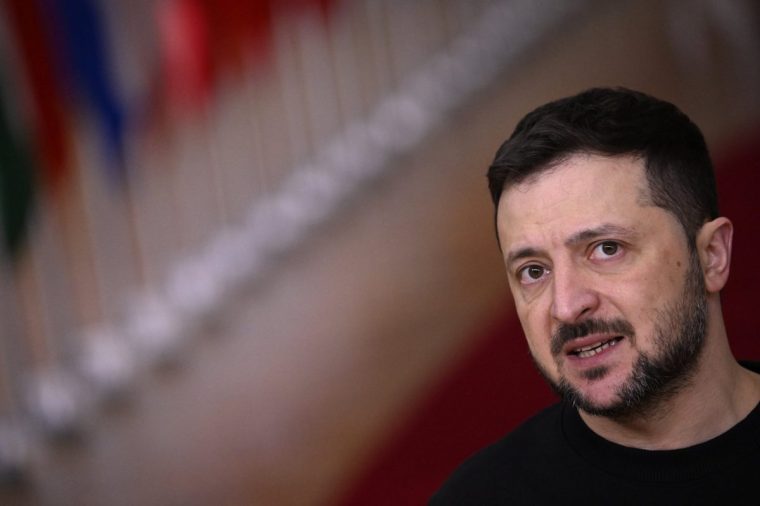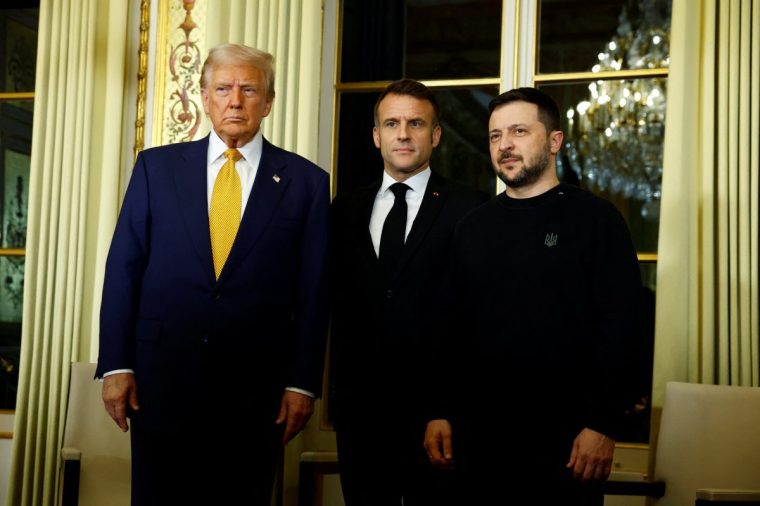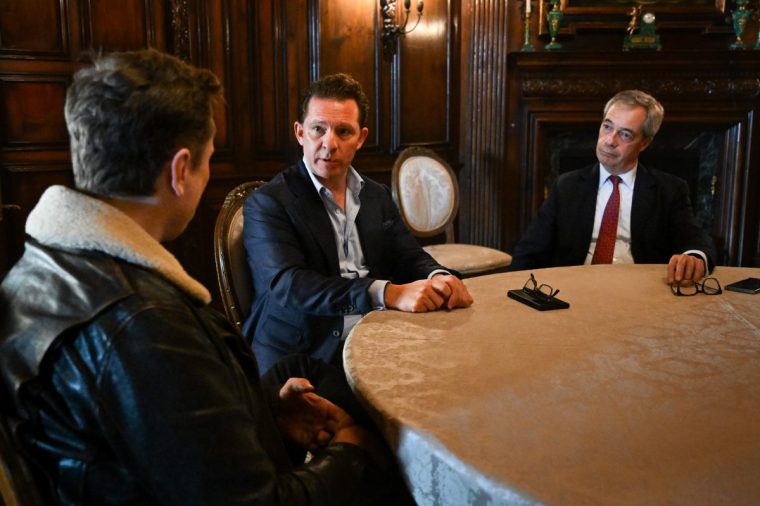“European guarantees won’t be sufficient,” Ukrainian President Volodymyr Zelensky declared last week after meeting with EU and NATO leaders in Brussels. It was a blunt rebuke from a leader embodying the dream of a united, peaceful, and free Europe.

It also reflects the challenges Europe faces in 2025 as it struggles with a faltering economy, leadership crises in France and Germany, and, most ominously, Donald Trump’s return to the US presidency.
Trump presents risks for Europe across many areas, including security, trade, climate, and China. The immediate concern is Ukraine. While the EU and Nato have pledged to defend Ukraine against Russia’s invasion, a prolonged stalemate has begun tipping the balance away from Kyiv. Trump’s vow to stop military aid to Ukraine and force peace negotiations with Russia could shatter Western unity. If US aid is pulled, can Europe fill the gap?
Kaja Kallas, the EU’s new foreign affairs chief, has urged Ukraine’s allies to ensure their promises to Kyiv are not “empty.” But as Zelensky suggests, Europe seems unready to provide the money or weapons needed if Trump abandons Ukraine.
European unity is showing strain. French President Emmanuel Macron has floated the possibility of deploying troops to Ukraine as trainers, but his scheme has fallen on deaf ears. German Chancellor Olaf Scholz has been particularly reluctant to intervene. “Support for Ukraine should be structured in a way so there is no escalation of the war, a war between Russia and Nato,” he said last week.

Trump’s return threatens more than the coalition behind Ukraine. He has long questioned Nato, and earlier this year said he would not honour the alliance’s mutual security guarantees for some European members. His suspicion that European countries are not spending enough on defence has turbocharged discussions on raising military budgets.
“Trump, with his unpredictable policy on military support for Kyiv and on how to end the war, will be the biggest challenge for the disorganised Europeans,” says Justyna Gotkowska, Deputy Director at the Centre for Eastern Studies in Warsaw. “In Europe, discussions need to speed up on how to approach Trump with a strategy, increased military commitments, and an idea on security guarantees for Kyiv, while keeping deterrence and defence in Europe strong.”
Security and defence are just one part of Trump’s test for Europe. Leaders are also bracing for a new trade war: the incoming president has vowed to impose tariffs of 10 to 20 per cent on imports. Macron has called on Europe to prepare for a “world of tariff wars,” and European Central Bank President Christine Lagarde has urged the EU “not to retaliate, but to negotiate.” Buying more US energy, military, and agricultural goods could temper trade disruption (and importing more US liquefied natural gas could also wean the EU off Russian LNG).
Beyond policy, Trump will affect European politics, strengthening nationalist and anti-EU forces. Billionaire Elon Musk, his close economic adviser, has already backed the far-right Alternative for Germany (AfD) party and hinted at a donation for Britain’s Reform party. Europe’s hard-right leaders, Hungary’s Viktor Orban and Italy’s Giorgia Meloni, are angling to become the EU’s intermediaries to Trump.

The disruption comes at a fragile time for Europe, with France and Germany grappling with leadership crises. The Franco-German motor, the traditional driver for European decision-making, is faltering. German elections in February could see conservative Friedrich Merz replace Scholz as chancellor. In Paris, Macron is struggling to reassert authority over a fractious parliament after appointing his fourth prime minister in a year.
Luxembourg’s Prime Minister Luc Frieden last week said political instability in Germany, France, and other nations had slowed the EU’s agenda and hampered preparations for Trump’s presidency. “That is complicated,” he said. “There are very few stable governments right now.”
Officials in Brussels had hoped to focus the EU’s agenda on reforms to build a more integrated, globally competitive, green, innovative economy. This was the message of a report on European competitiveness published last September by former ECB head Mario Draghi. He warned of “slow agony” if the EU does not overhaul its economy to compete with the US and China over the next five years.
These challenges could prompt leaders to craft a strategy to prepare for Trump and build a more resilient economy and agile polity. But that is not happening, says Rosa Balfour, director of Carnegie Europe. “I don’t want to be all doom and gloom, but the first few months of 2025 are going to be chaotic, with a lot of uncertainty,” she says.
In the past, EU policy breakthroughs have emerged from crises, such as the Covid pandemic’s joint borrowing scheme in 2020. Balfour hopes 2025 could prompt something similar. “At the end of the day, it ought to be obvious to EU member states, political parties, and citizens that the only way forward is to hang in there together,” she says. “Europeans will have to understand they’re better off together than following a line decided in Washington, Moscow, or Beijing.”

